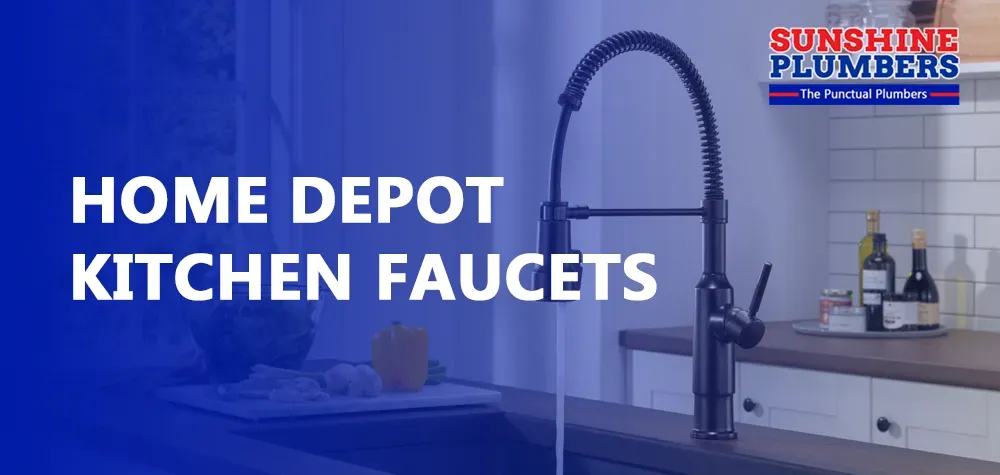Gas Line Installation Guide: Unveiling Expert Insights
As we open the doors to the intricate world of gas line systems, this comprehensive resource aims to be your go-to companion, offering valuable insights, safety protocols, and the expertise that sets us apart. Whether you're a homeowner embarking on a new gas-powered venture or contemplating the upgrade of your existing system, Sunshine Plumbers is here to demystify the process. Join us in this exploration of gas line installation, where precision meets safety, and where informed decisions pave the way for a reliable, efficient, and secure gas supply for your home.
Understanding the Need for Gas Line Installation
Gas line installation becomes a necessity in various scenarios, each driven by specific needs and circumstances. Here are common scenarios that may necessitate the installation of a gas line:
- New Construction:
- Building a new home or structure often requires the installation of a gas line to accommodate appliances such as water heaters, furnaces, stoves, and fireplaces that rely on natural gas or propane.
- Appliance Upgrades:
- When upgrading or adding gas-powered appliances to your home, such as a gas stove, oven, or dryer, additional gas lines may be needed to connect these appliances to the gas supply.
- HVAC System Installation:
- Installing a new heating, ventilation, and air conditioning (HVAC) system that operates on gas may necessitate the extension or installation of gas lines to ensure proper functionality.
- Water Heater Replacement:
- Replacing an old electric water heater with a gas-powered one requires the installation of a gas line to provide the necessary fuel source.
- Outdoor Living Spaces:
- Adding features to outdoor spaces, like gas-powered grills, fire pits, or outdoor kitchens, often requires the installation of gas lines to supply fuel for these amenities.
- Conversion to Gas Appliances:
- Homeowners may opt to convert existing electric appliances to gas for increased efficiency. This conversion necessitates the installation of gas lines to accommodate the new gas-powered appliances.
- Expanding Gas Usage:
- If homeowners wish to expand the use of natural gas or propane within their homes, such as adding a gas fireplace or supplementary heating sources, additional gas lines may be required.
- Generators and Backup Systems:
- Installing a natural gas or propane-powered generator or backup power system often involves the installation of dedicated gas lines to ensure a reliable and continuous fuel supply during power outages.
- Commercial Applications:
- In commercial settings, gas line installation may be necessary for a variety of applications, including restaurant kitchens, industrial processes, or heating systems in large spaces.
- Renovations and Remodeling:
- Renovating or remodeling a home may involve changes to the layout or additions of new spaces, which could require the extension or reconfiguration of existing gas lines.
In all these scenarios, it's crucial to engage the services of qualified professionals, such as Sunshine Plumbers, to assess, plan, and execute gas line installations safely and in compliance with local codes and regulations.
Factors Influencing Gas Line Installation
Several factors influence the installation of gas lines, and careful consideration of these elements is essential to ensure a safe, efficient, and compliant system. Here are the key factors that influence gas line installation:
- Type of Gas:
- The type of gas being used—natural gas or propane—affects the sizing and material requirements of the gas line. Different gases have distinct properties that must be accommodated in the installation process.
- Distance and Routing:
- The distance the gas needs to travel from the source to the appliances influences the sizing and layout of the gas lines. The routing of the lines must be carefully planned to minimize bends, ensure proper ventilation, and adhere to safety regulations.
- Gas Load Calculation:
- Gas load calculation involves assessing the total demand for gas in the system. Factors such as the number and type of appliances, their consumption rates, and peak usage times contribute to determining the appropriate size of the gas line.
- Number of Appliances:
- The number and type of gas-powered appliances connected to the gas line impact the overall demand on the system. Each appliance has a specific gas consumption rate that influences the sizing of the gas line.
- Local Codes and Regulations:
- Compliance with local building codes and regulations is crucial for the safety and legality of gas line installations. Professionals must be well-versed in local requirements to ensure that the installation meets all necessary standards.
- Material Selection:
- The choice of materials for gas lines, such as steel, copper, or flexible materials, depends on factors like the type of gas, environmental conditions, and local regulations. Each material has unique characteristics that make it suitable for specific applications.
- Pressure Requirements:
- Gas lines must be designed to accommodate the required pressure levels for proper appliance operation. This includes accounting for pressure drops along the length of the line and ensuring that the pressure remains within safe and operational limits.
- Safety Measures:
- Incorporating safety measures is a critical consideration. This includes the installation of shut-off valves, proper ventilation, and leak detection systems to enhance safety and minimize risks associated with gas leaks.
- Future Expansion:
- Planning for potential future expansion is essential. Anticipating additional gas-powered appliances or changes to the property layout ensures that the installed gas lines can accommodate evolving needs without requiring significant modifications.
- Soil and Environmental Conditions:
- The composition of the soil, as well as environmental factors like temperature and humidity, can impact the choice of materials and installation methods. Corrosion resistance and environmental durability are crucial considerations.
Professional vs. DIY Gas Line Installation - Weighing the Options
Gas line installation is a complex and potentially hazardous undertaking, and the decision to opt for professional services versus a do-it-yourself (DIY) approach carries significant implications for safety, compliance, and the overall success of the installation. Here's a breakdown of the key considerations when comparing professional gas line installation with a DIY approach:
Professional Gas Line Installation:
1. Expertise and Experience:
- Professionals bring a wealth of expertise and experience to the table. Trained in gas line systems, they possess in-depth knowledge of gas properties, safety protocols, and local regulations. Their experience enables them to navigate potential challenges and ensure a seamless installation.
2. Compliance with Codes:
- Gas line installations are subject to stringent local codes and regulations. Professionals are well-versed in these requirements and ensure that the installation adheres to all safety standards. Compliance is crucial not only for safety but also to avoid legal and insurance issues.
3. Safety Assurance:
- Safety is paramount in gas line installations. Professionals employ industry best practices, conduct rigorous leak tests, and implement safety measures such as shut-off valves and proper ventilation. This reduces the risk of gas leaks, explosions, and other safety hazards.
4. Precision Sizing and Design:
- Professionals conduct precise calculations to determine the correct sizing of gas lines based on factors like gas load, distance, and the number of appliances. This ensures optimal performance and prevents issues such as pressure drops or inadequate fuel supply.
5. Specialized Equipment:
- Gas line installation may require specialized equipment for tasks such as trenching, pipe threading, and pressure testing. Professional plumbers are equipped with the necessary tools and technology to execute these tasks efficiently and accurately.
DIY Gas Line Installation:
1. Limited Expertise:
- DIY enthusiasts may lack the specialized knowledge and training required for safe and compliant gas line installations. Without a deep understanding of gas systems, they may overlook critical safety measures and regulatory requirements.
2. Safety Risks:
- Gas line installations pose inherent safety risks, and errors can lead to gas leaks, explosions, or other hazardous situations. DIY installations may lack the rigorous safety measures implemented by professionals, putting both property and occupants at risk.
3. Code Compliance Challenges:
- Understanding and adhering to local building codes and regulations can be challenging for DIY installers. Non-compliance may result in serious consequences, including fines, penalties, and the need for corrective measures.
4. Lack of Specialized Tools:
- Gas line installations often require specialized tools and equipment. DIY installers may not have access to these tools, potentially leading to suboptimal installations or the use of improper materials.
5. Limited Warranty and Accountability:
- Professional installations typically come with warranties and accountability. In the event of issues, homeowners can rely on the expertise of the installer. DIY installations lack this level of assurance, and any problems may be more challenging to rectify.
In conclusion, while some homeowners may be adept at DIY projects, gas line installation is an area where professional expertise is strongly recommended.
Choose Sunshine Plumbers for Your Gas Line Installation: Unmatched Expertise and Safety Assurance
When it comes to gas line installation, entrust the job to the seasoned professionals at Sunshine Plumbers for an experience that goes beyond the ordinary. Our team brings a wealth of expertise and industry knowledge, ensuring that your
gas line installation is executed with precision, adherence to local regulations, and a paramount focus on safety. We understand the intricacies of gas systems, from precise sizing calculations to rigorous compliance with safety codes. By choosing Sunshine Plumbers, you not only benefit from our specialized tools and advanced technology but also gain access to a team committed to the highest standards of professionalism.




